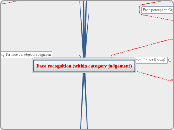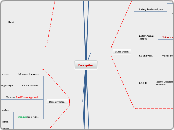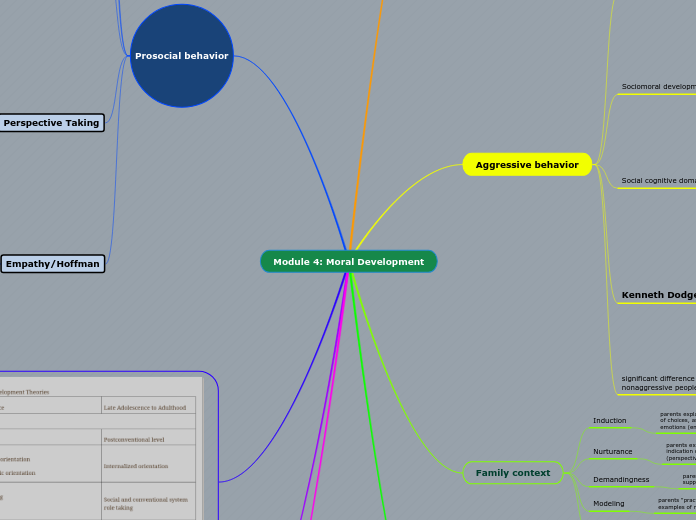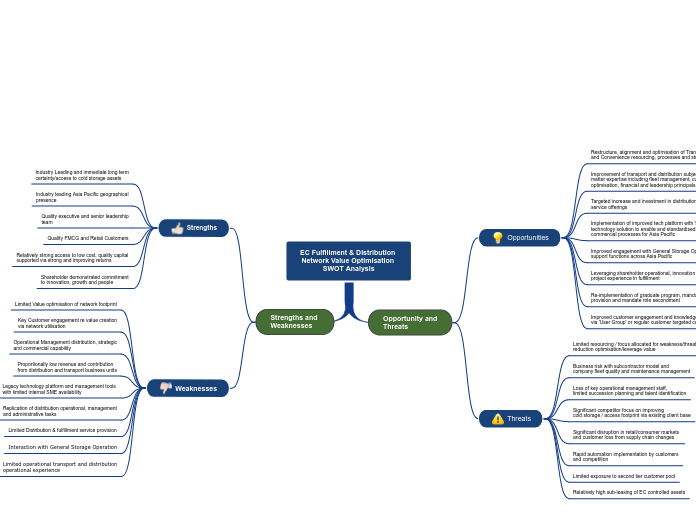Face recognition (within category judgement)
Bruce & Youngs ("Square" model)
_Burton & Bruce IAC
connectionist model
Two Routes?
Familiar / Unfamiliar=different or just harder
Malone: Doulbe dissistiation with 2 Patients (famous statesmen)
Unfamiliar
Structural
Expression
Speech
Directed visual processing (difference to Familiar to check specific facial detail)
Familiar
Structural: its face
Face Recognition (i know him)
Identity nodes (its a singer)
Name generation (its mick jagger))
How?
Evidence
3 Stages: Bruce Rt's
b) x is a politician faster than naming
a) Familiarty is faster than sematnic (occupation)
Object / Face diference
Double dissitiation
Object recognition
Agnosia: "Outpouchings" (Oliver Sacks)
Face recogntion
Propagnosia: some dont recognize faces
Naming=different
Young, Hay Allice: Diary Study: we can't name unless semtic info
5.Cognintve System : Evaluate and feed back on what we see
4. Directed visual Processing: Other semantic information (singers are attractive- check out his eyes
3B. Facial Speech analyis
3A Facial Expression (emotional) analysis
2 C. Naming (its Mick Jagger)
2 B. Person identity nodes PIN (a musician)
2A. Face Recogntion units (FRU: i know him)
1.Structural encoding (its a face?)
Viewpint indendent (3D) descriptions
Viewpoint (2D) dependent
Issues with explanation of face recognition
Neurological issues
Capgras delusion both for face and objects
Damaged ventral
Prosppagnosia
Bauers Covert Recognition
GSR response
IAC expalins this as weekend FRU to PIN connections
PIN to SIU ok (Therapy)
Points to damaged Ventral (what)
Youngs ex-serivcemen
Familiar / Unfamilar reogntion may be affected
Facial Expression Analysis may still work
Two Routes: Dorsal / Ventral
Objects and Faces in different areas
fMRI
Double dissotiations
More holisitc
Grotesque
Inverted impaired more 2nd order features: Epert tuning lost
1st order: eyes, nose, mouth
But dog experts have more problems with inversed dogs
Yins Inversion effect is more destructive for faces comp to objets
Difference familiar / unfamiliar faces
Matching rate only 80%
We need to account for facial emotions and facial speech
Its a within categ. comp - with same cat. objects
Facees all look similar, objects dont
Face Experts: innate bias toward faces:
Same three stages as object recognition: Percept.recog , sematic knowlege, naming
Faster Rts of famil vs. semantic
Evidence Youngs diary sutdes
Same processing for face vs. object recognition
Quoalitatively Different: Yin: Inversion effect not for objects ?
Holistic/ configural processing
Diamond & Carey: Dog experts vs. non Experts worse at inversed dogs
Second order: Differences in those relations
Evidence: Searcy & Bartlett: Inversed spatial relationships were less grotesque
First order: eyes above nose
Innate/ but Kick Start Johnson & Morton: Newborns show attentional bias to faces
Location specific: Evidence for a "Granmother" cell
Is it different from Object Recog?
Is it just different because of within/ between category classification (unfair comparison)
Neuropsychological Evidence
Different Locations (fMri) in the brain from object recog
Double Dissotiation
Agnosia
Damage at earlier stages visual procc: A brush: "A wooden stick and a black object" (Humprheys)
Inability to rec objects ("outpouchings")= stop at percept (2,5 D or 3D) but no recogn)
Prosopagnosia
Inahbility to recognize familiar faces
Capgras Delusion
Burton & Bruce IAC (Interactive activation and competition)
Name Recog
NRU's (Name Recog Untits)
WRUs (general word recgo units)
Visual Recog
Say: its M. J.
PINS (Personal Id nodes) One node matches a person
SIU's (It's a singer and his name is Michael J.)
FRU's (Face Rec Units)= sensory id
Bruce and Youngs General Model of Face Recog
Facial Speech Analysis (Lip reading)
McGurkEffect (ba, ba, ga)
Facial Expression Analysis
Face Recognition
Name Gerneration
Person Identiy Nodes (Semantic knowledge)
Face Recognition units (Familarity)
Yin: Immediate recognition is good - probably image recognitino, not face
Cognitive System : Overrule decisions, if unsure
Face perception Organisation (Stages)
We have expertise through attentional bias from birth
Highly difficult task: High leval of detail
Bruce and Johnstons Speed Measuring: Recogntion happens in Stages
1. Perceptual classification, 2. Sematic classification, 3. Naming
Starts where perception ends=structural classification
Familiar / unfamiliar face rec. is different
IAC explains this: FRU to SIU-Not enough activation for covert/ enogh for overt
Concious (overt) vs. covert recog. points to seperate neural pathways
Overt Ventral
Covert Dorsal
Neuropsychological Evidence for indepent Modules by: Young: ex-servicemen
Unfamiliar Faces
Generally Worse
Influenced by pose, lighting and viewpoint
Bruce: Video Line Up 80% correct
Kemp: Credit card image matching 36%correct
Familiar Faces (Paul McCartney)
Change independent
Time independent
Viewpoint independent









